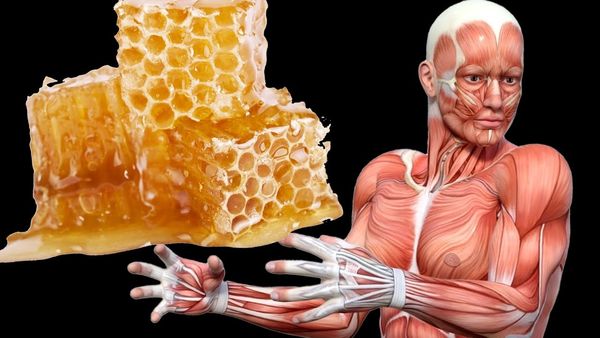Starting to eat honey regularly can bring several benefits to your body due to its unique composition of sugars, enzymes, minerals, vitamins, and antioxidants. Here’s an overview of what happens when you incorporate honey into your daily diet:
Honey is known for its antibacterial properties, which can help combat infections in the digestive tract. Additionally, it’s a potent prebiotic, meaning it nourishes the good bacteria that live in the intestines, which are crucial not only for digestion but also for overall health.
Honey is rich in antioxidants, including phenolic compounds like flavonoids. Antioxidants help to protect your body from cellular damage caused by free radicals. Free radicals contribute to the aging process and may also play a role in the development of chronic diseases such as cancer, heart disease, and other health issues.
Honey is an effective remedy for a sore throat. Its texture and composition help to soothe irritation and can also act as a cough suppressant. Honey has been shown in several studies to be as effective as some common cough suppressants, making it a good natural alternative.
Due to its antimicrobial and anti-inflammatory properties, honey is excellent for skin care, particularly for acne treatment and the promotion of healing in wounds. When applied topically, honey can aid in the treatment of minor burns and wounds and is often found in skin care products for its skin-soothing benefits.
Honey contains natural sugars like glucose and fructose, which can provide a quick energy boost. This makes it a popular choice among athletes for a rapid source of calories and endurance, particularly before or during exercise.
Consuming honey can trigger a small spike in insulin levels and release serotonin — a neurotransmitter that improves mood and happiness. The body converts serotonin into melatonin, a chemical compound that regulates the length and quality of sleep.
Regular consumption of local honey may help your body adapt to the allergens in the environment, thereby reducing your allergic reactions over time. This is thought to work like a natural vaccine: low exposures to allergens via honey can stimulate your immune system to produce antibodies against the pollen.
When used in moderation, honey is a healthier alternative to sugar. It is more effective in helping to control blood sugar levels due to its lower GI and can contribute to a feeling of being full. However, because honey is still a sweetener, it should be consumed in moderation.
Adding honey to your diet can offer multiple health benefits, from improving gastrointestinal health to boosting your energy levels. However, it is high in calories and sugar, so it should be used sparingly, especially if you are watching your weight or managing your sugar intake. Always ensure you’re using pure, high-quality honey to maximize these health benefits.
